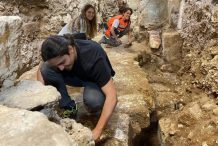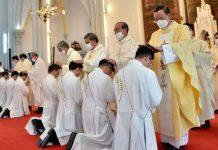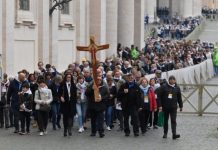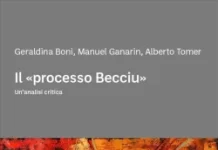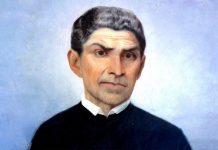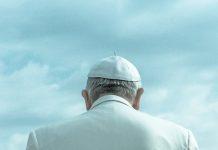René Brülhart, a former president of the Financial Information Authority (AIF), answered questions Tuesday at the Vatican’s financial scandal trial. According to the Vatican’s financial watchdog Head, he advised against a controversial London property deal but did not have the power to stop it.
Newsroom (10/04/2022 7:09 PM Gaudium Press) On April 5, 2022, Judges questioned Brülhart about his work as Head of the AIF and his lucrative side-contract advising the Secretariat of State on investment strategy. But he told judges he was “offended” by the charge and has not committed any crime.
Questions focused on the secretariat’s 2018 decision to acquire a London building for some 350 million euros from its former investment manager, Raffaele Mincione.
The secretariat hired Gianluigi Torzi, a businessman with ties to Mincione, to complete the purchase on its behalf. Torzi is charged with extorting millions from the Vatican in a complicated arrangement. However, he claims that senior officials in the Secretariat of State actually approved the deal.
Prosecutors in Vatican City maintain that Brülhart and his agency should have detected the risk of fraud and stopped the deal before it happened.
The Swiss lawyer told the court that while he was aware of the potential for criminal financial activity by Torzi in the final stages of the purchase, he did not have the power to prevent the deal going through, neither as a consultant to the secretariat nor as president of the AIF, which did not have oversight of the secretariat’s affairs.
Brülhart said he was first made aware of the deal’s details on March 7, 2019, and the AIF received a suspicious transaction report related to Torzi two weeks later.
But he said meetings with both Pope Francis and Archbishop Edgar Peña Parra, the sostituto at the secretariat, made clear to him that Peña Parra was committed to closing the deal with Torzi, regardless of the legal risks or costs involved.
Italian media reported this week that Peña Parra had written to Pope Francis around the same time, thanking him for allowing him to conclude the deal as he saw fit rather than begin a legal process against Torzi.
The archbishop, who serves as de facto papal chief of staff, said in a letter to the pope that involving financial law enforcement in the London deal, even as the Vatican was allegedly being extorted for millions, presented an unacceptable risk of “reputational damage.”
Brülhart told the court that while he had been frank about the risks of the London deal, and the secretariat had received separate cautionary legal advice from its UK lawyers, Peña Parra made it clear in an April 16 meeting that he was committed to the proceeding “under any circumstances.”
While his former agency, the AIF (now renamed the ASIF), did not have supervisory powers over the Secretariat of State’s financial affairs, Brülhart confirmed to the court that the AIF did have primary oversight of the IOR, a Vatican bank.
During the same period in which Peña Parra was meeting with Brülhart and Pope Francis to discuss the London deal and coming to final terms with Torzi for the acquisition of the London building, the archbishop and his superior, Cardinal Pietro Parolin, were actively pressuring the president and director-general of the IOR to approve a loan of 150 million euros to finance the London deal.
The bank’s leadership rejected the loan application and flagged the request as “opaque” and “suspicious,” leading Pope Francis to authorize a criminal investigation into the entire affair in July.
Vatican officials have previously noted that Brülhart’s secondary role as a highly-paid investment advisor at the secretariat. First reported in July last year, it appeared to be a clear conflict of interest with his job overseeing the AIF — especially given the pressure being put on the IOR leadership by the Secretariat of State to finance a potentially illicit transaction.
Peña Parra was reportedly “outraged” by the bank’s rejection of the loan application. The Vatican trial heard from his former secretary last week, authorized an investigation into the IOR’s director-general, Gianfranco Mammì, in response.
Brülhart served as president of the AIF until November 2019, when he left his post under confusing circumstances: although the Vatican claimed his 5-year term of office had expired and not been renewed, his position did not actually have a set term, and it emerged he had resigned.
His departure from the AIF came just weeks after the agency was raided by Vatican law enforcement in the investigation into the Secretariat of State’s London property deal. That raid, which seized documents and electronic devices from AIF offices and could have compromised information shared by international partner agencies, resulted in the suspension of the Vatican watchdog from the Edgemont Group, an international network of financial intelligence services.
Several members of the AIF’s board of directors resigned in protest of the raids and Brülhart’s departure, with the chairman, Marc Odendall, saying the agency had become an “empty shell.”
Before he was named president of the AIF by Pope Francis in 2014, Brülhart served as the agency’s director beginning in 2012. Before that, he led the financial intelligence unit of Liechtenstein and was widely praised for his financial reforming work in the principality.
On July 3, 2021, Brülhart was charged with abuse of office by Vatican prosecutors. He was one of 10 individuals, along with Tomasso Di Ruzza, the former director of the AIF, to be indicted following a two-year investigation by Vatican law enforcement.
Responding to the indictment, Brülhart said the decision to charge him was likely a “procedural error,” and the charges against him would “disappear like the mist in the sun.” He subsequently stepped down from the board of directors of a Swiss bank, citing personal reasons.
The court also announced on Tuesday that Cardinal Angelo Becciu would not be returning to court on Thursday to answer more questions from the judges, as previously scheduled. Instead, the cardinal’s next appearance will be delayed until May 5.
The court’s next meeting is now set for April 27, when Brülhart’s former colleague, Tomasso Di Ruzza, will give evidence.
(Via the Pillar)
Compiled by Raju Hasmukh



